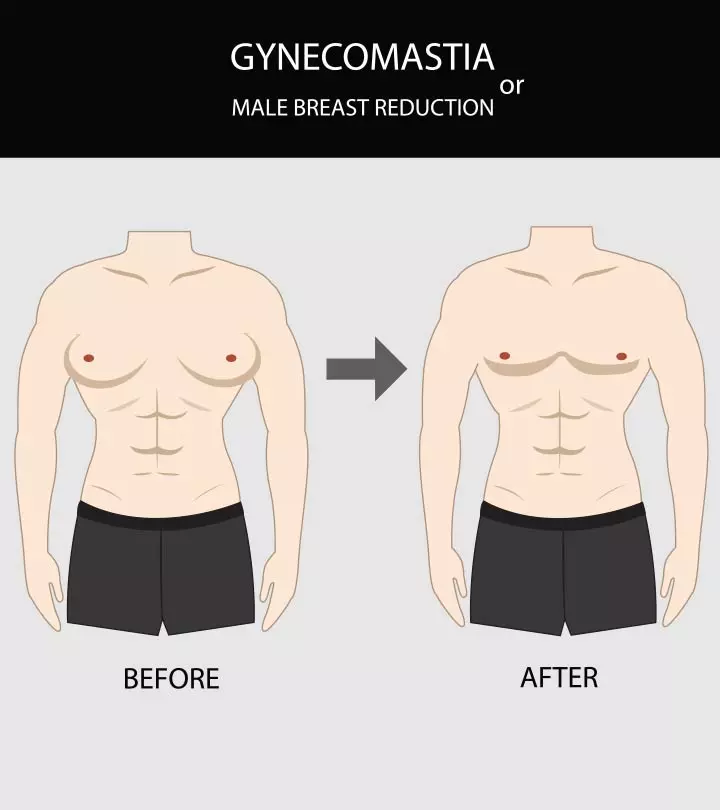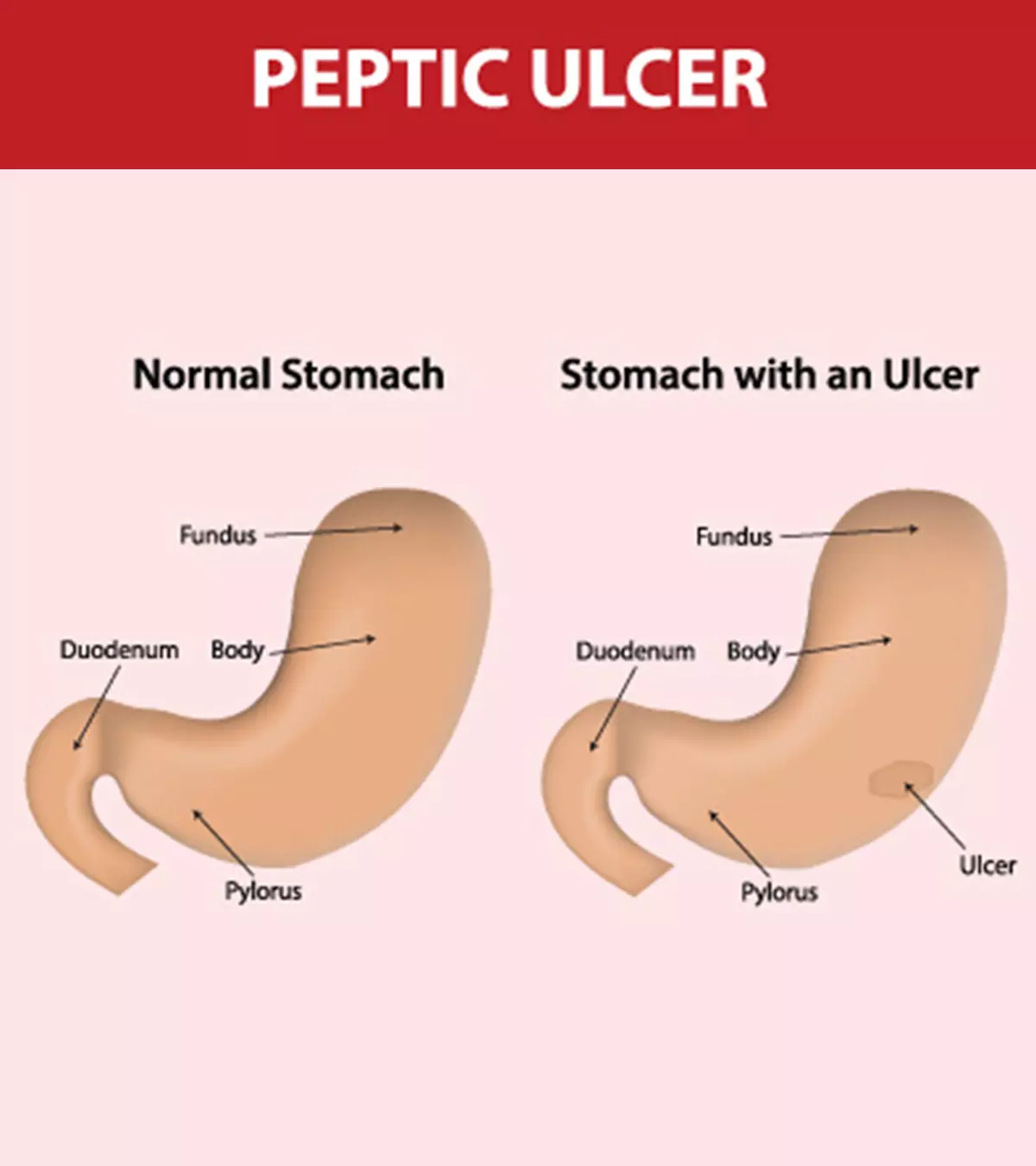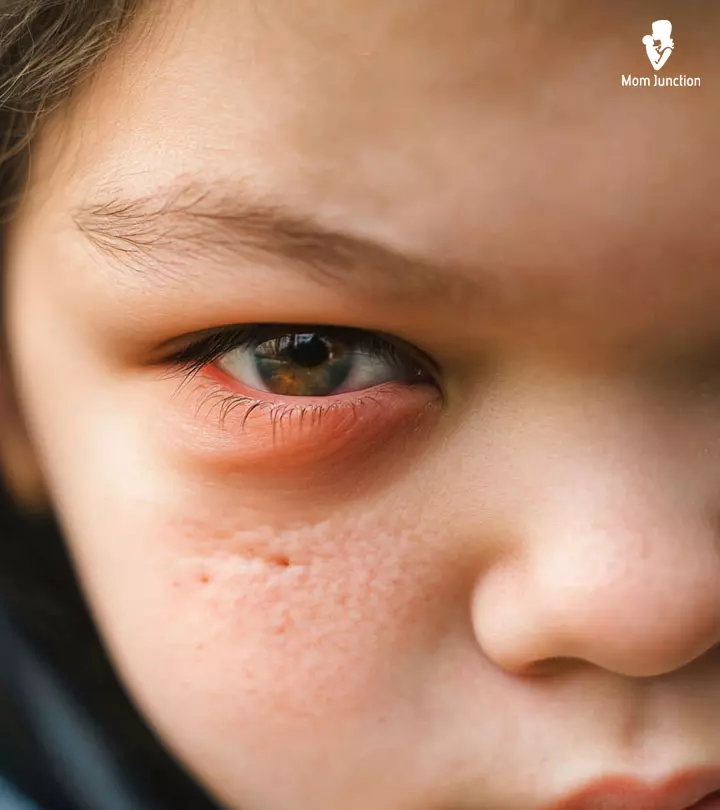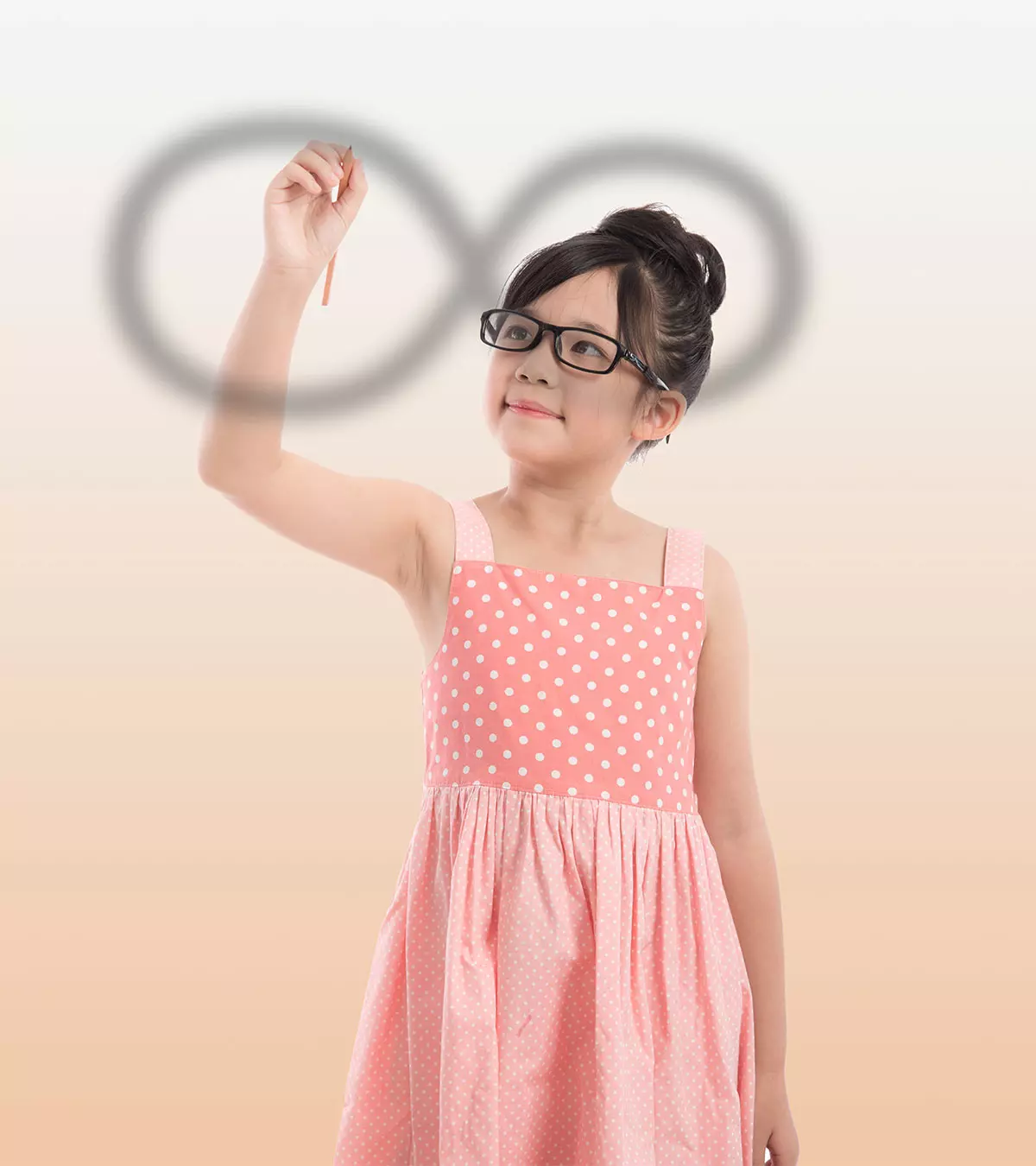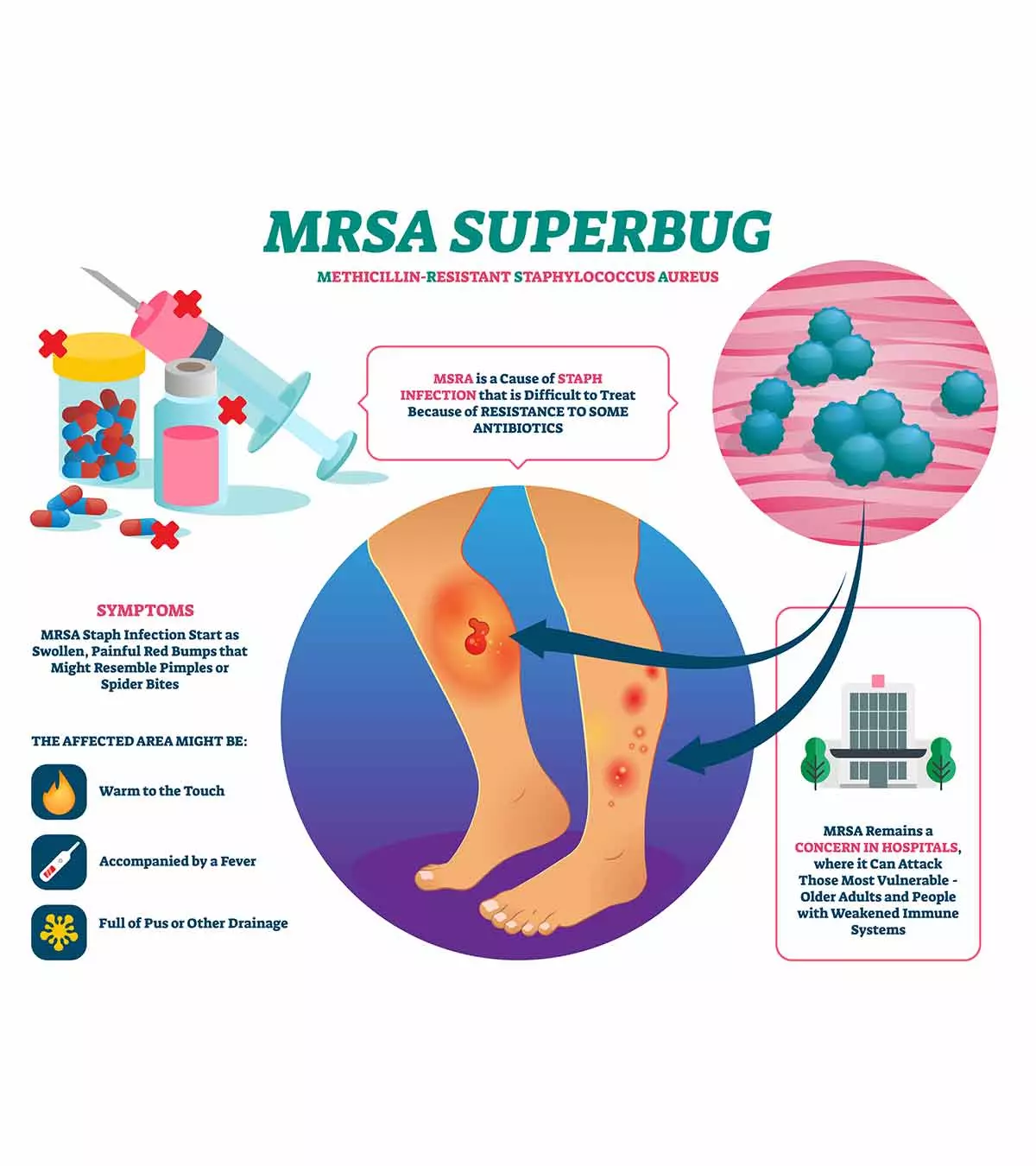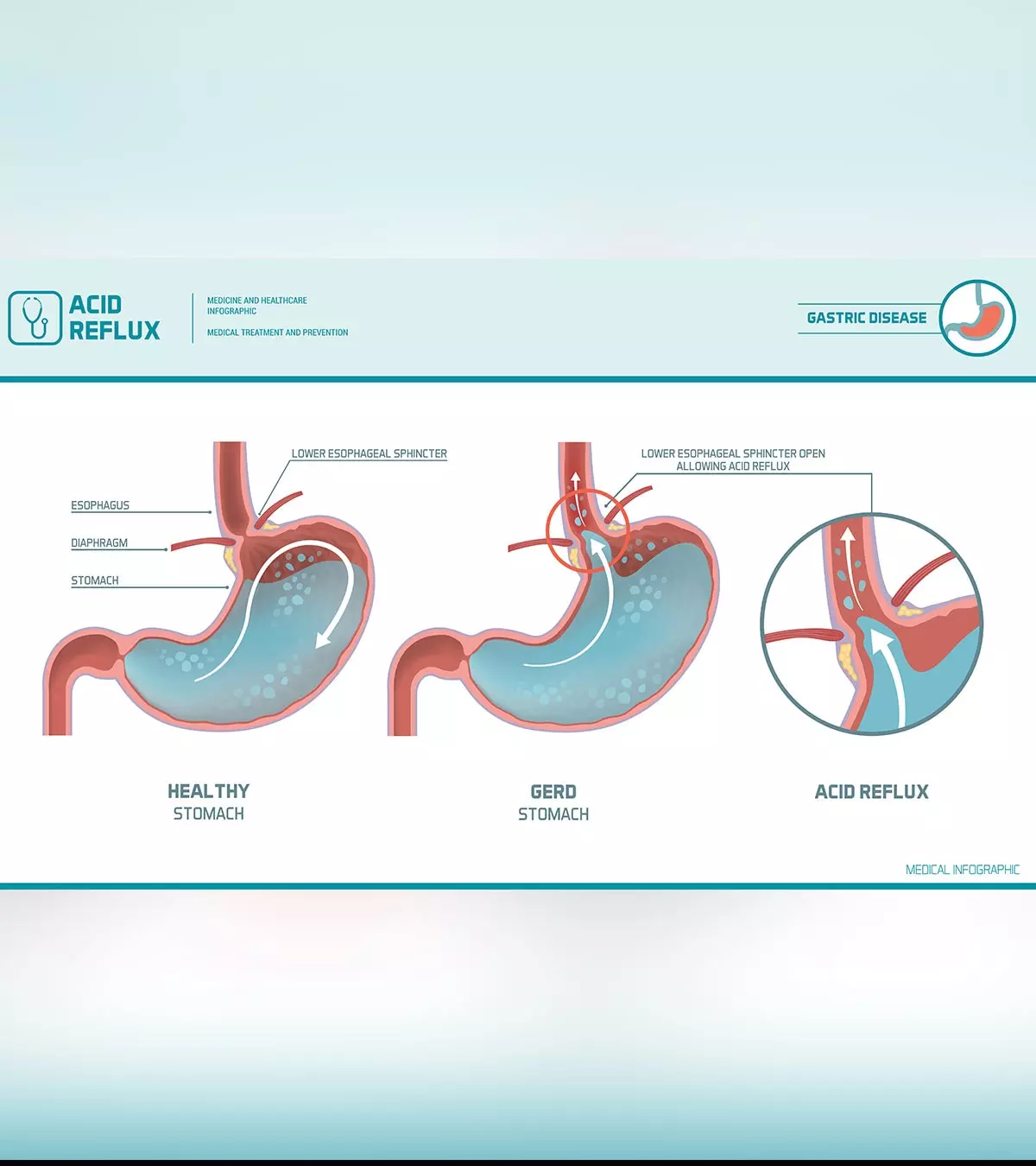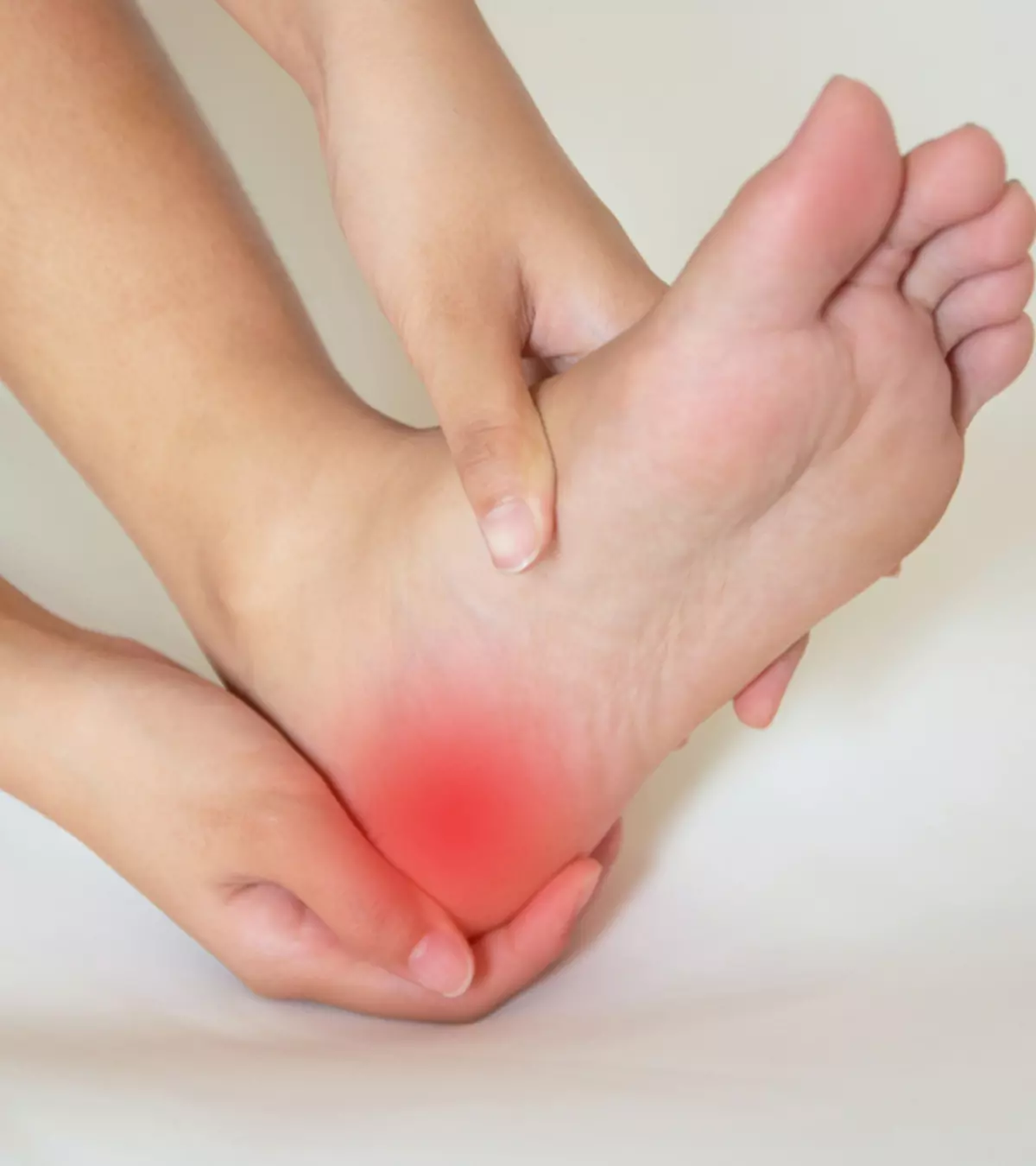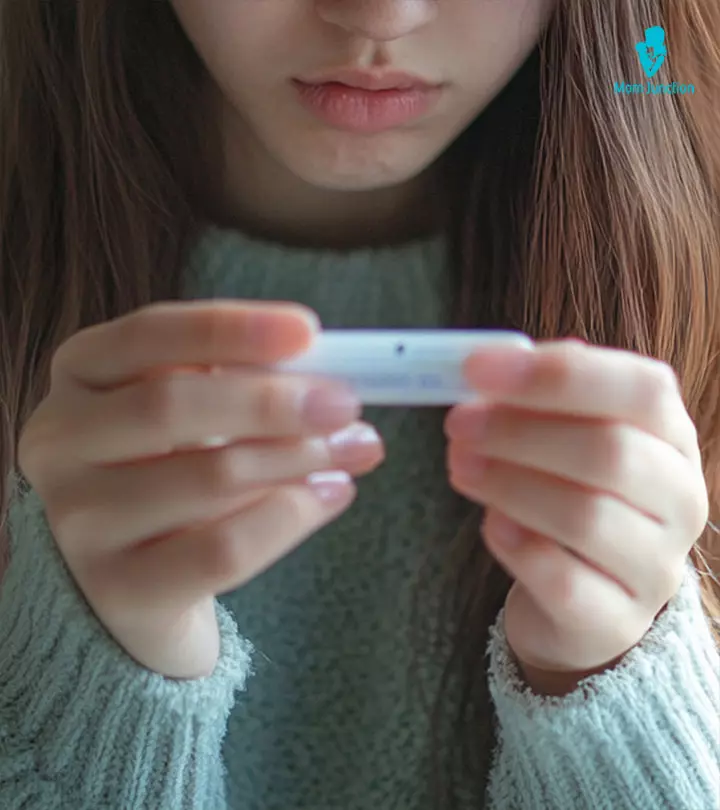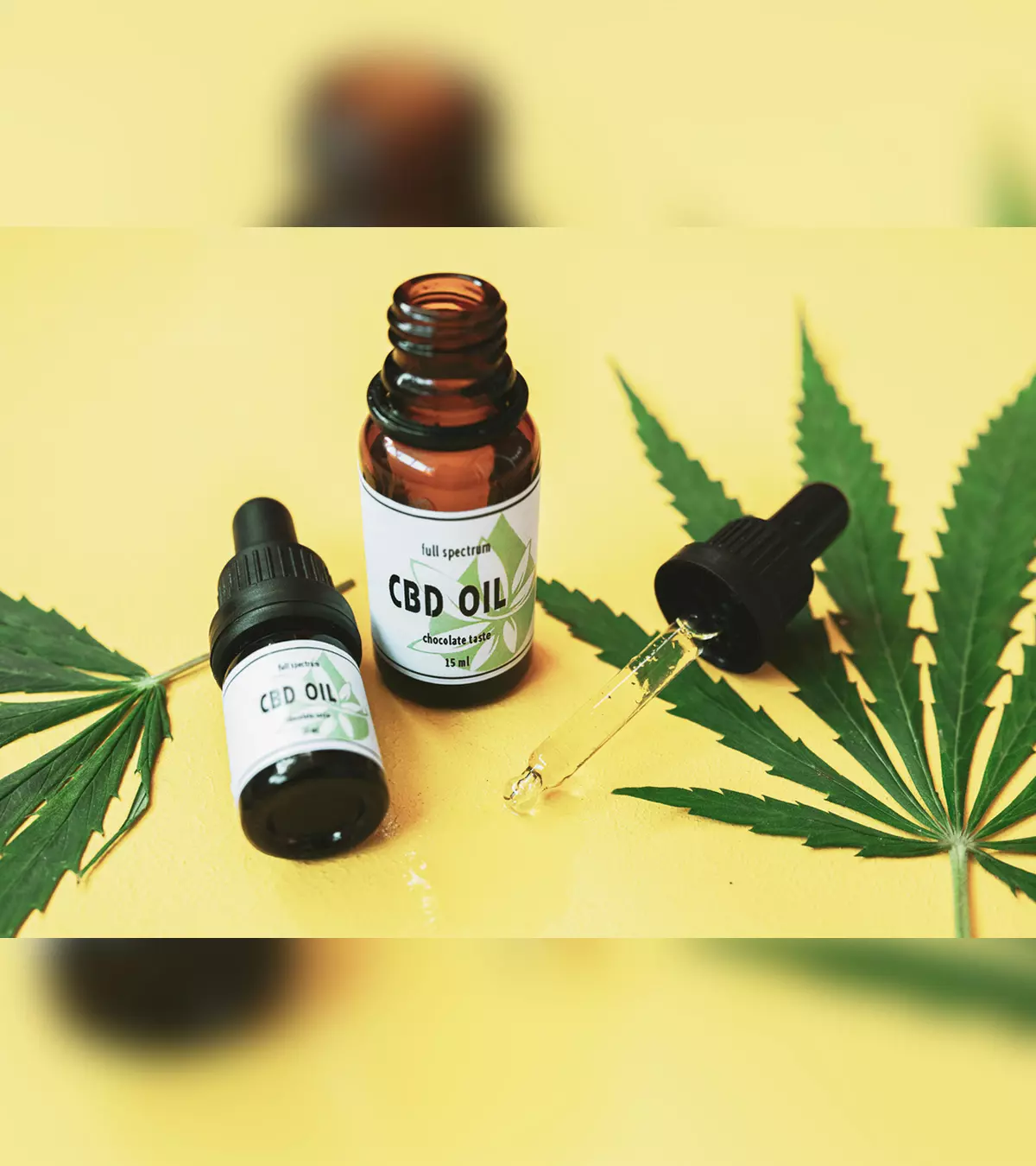
Image: iStock
If you are unaware of using Cannabidiol or CBD oil for kids, you should be reading this post. CBD oil is a component found in the Cannabis Sativa family’s hemp and marijuana plants, making individuals feel high. (1). The oil has gained popularity in recent years for treating various conditions, including chronic pain, stress, insomnia, nausea, and vomiting.
Different procedures are used to extract the oil, including carbon dioxide extraction, ethanol extraction, and hydrocarbon extraction (2). After extraction, the oil is refined and marketed as tincturesiA plant or animal extract that is dissolved in ethanol (ethyl alcohol) and used for medicinal purposes. , capsules, topicals, chewable gummies, beverages, and other products.
This post discusses the safety of CBD oil for children, including its advantages, age-appropriate dosage, and potential side effects and hazards associated with its use.
Key Pointers
- CBD oil or Cannabidiol, a derivative of the cannabis plant, is reportedly used to treat certain neurological ailments, such as epilepsy, in children.
- It is essential to use this oil only when prescribed by an expert since it poses the risk of side effects such as CBD toxicity, gastric problems, and drug interactions.
- The oil is not approved for use in children in some countries. Therefore, seek professional advice before using it.
Is CBD Oil Safe For Children?
There’s no scientific evidence to prove the safety and efficacy of CBD oil for children.
However, one CBD product, namely Greenwich Biosciences’ Epidiolex, has been approved for use as a part of a regulated medication to treat epilepsyi An abnormality of the brain’s electrical activities resulting in seizures and loss of consciousness. in children by the US FDA (3). This prescription drug contains a purified form of CBD that helps treat seizures in children that occur in rare and severe epilepsy forms, such as Lennox-Gastaut syndromei A severe form of epilepsy affecting the muscles causing sudden jerks, tightening, or loss of muscle stiffness. and Dravet syndromeiA rare form of epilepsy acquired in the first year of life, triggered by high temperature. (4).
Upon research by multiple institutions, it was found that a lifetime prevalence ranges from 0.69 to 76.8% of the usage of non-medical cannabis by adults for treating epilepsy. The anti-seizure properties associated with the product have promising health outcomes for patients with epilepsy.
Since these epilepsy forms do not respond to anti-seizure medications, CBD use becomes crucial. However, remember that using CBD oil as a standalone medication to treat epilepsy in children isn’t well-researched. Thus, if you want to use CBD oil for treating epilepsy or any other ailment in your child, consult a pediatrician.
 Quick fact
Quick fact
Image: Shutterstock
Note: CBD is often confused with THC (tetrahydrocannabinol), another cannabinoid found in hempi A plant of the cannabis species used for medicinal or industrial purposes. and marijuana. THC is a psychoactive compound that makes a person feel “high” and causes addiction and psychosisiA mental condition characterized by hallucinations and delusions. . However, CBD doesn’t have these effects and affects separate brain regions than THC (5).
Uses Of CBD Oil For Children

Image: Shutterstock
Apart from treating epilepsy, the FDA doesn’t approve CBD oil’s use to treat any ailment in children. However, studies suggest that CBD oil may be an effective treatment for the treatment of several ailments.
- Anxiety: Some recent studies show that CBD oil is a natural remedy that may help reduce anxiety (6) (7). Preclinical evidence from animal studies demonstrates that CBD oil use can reduce anxiety associated with multiple disorders, such as post-traumatic stress disorder (PTSD), generalized stress disorder, and social anxiety disorder (8). It helps in relaxing the brain and musculoskeletal system. However, there’s a need for further study to make any recommendations for children.
- Autism: A 2019 study on 188 autism spectrum disorder (ASD) patients showed that the use of cannabis oil containing 30 percent CBD and 1.5 percent THC appears to be a “well-tolerated, safe, and effective option to relieve symptoms associated with ASD” (9). Another study involving 60 children also showed some promising results (8). However, these results aren’t sufficient for clinical validation as the research samples are quite small.
- Attention deficit hyperactivity disorder (ADHD): A systematic review conducted in 2020 highlighted that CBD could help alleviate symptoms of ADHD (10). It helps in calming the child and lowers the hyperactivity. However, currently, no targeted research studies are available to support the use of CBD oil for treating or managing ADHD in children.
- Multiple sclerosis (MS)iA disorder of the central nervous system that causes problems of speech, coordination, and vision, numbness, and walking difficulties. : A 2019 study by Thorsten Rudroff and Jacob Sosnoff suggests that CBD use may be associated with less pain and spasticity, ultimately leading to improved mobility and proper sleep (11). The release of musculoskeletal spasms is the mainstay of treatment. Yet, more research is warranted to derive any conclusions about CBD oil use for MS treatment in children.
 Experts say
Experts saySide Effects Associated With CBD Oil Use
CBD oil use for children isn’t well-researched, and its unguided use may cause certain side effects, such as
- Gastrointestinal disturbances: Upset stomach and abdominal pain are common side effects of CBD oil use in sensitive individuals. So, always consult a doctor or alternative medicine expert before using CBD oil for children.
- Toxicity: If CBD oil isn’t used under guidance, there’s a potential risk of overdose and toxicity. Therefore, it’s essential to use CBD oil only after consultation with an expert about the usage, benefits, precautions, and side effects. Some of the symptoms you may see in CBD toxicity are severe nausea or vomiting, high blood pressure, anxiety, paranoia, rapid heart rate, and hallucinations (12).
- Possible drug interaction: CBD is a bioactive plant-based compoundiFound in plants and specific foods possessing antimicrobial activity and helpful in the management of heart problems and other diseases. that can interact with other chemicals and compounds in the medications. Since CBD affects the brain and the central nervous system, antidepressants and antipsychotics are the most obvious drugs that can interact with CBD.
Some other drugs that can interact with CBD are blood thinners and thyroid and heart medications (13). Therefore, if your child is on any medication, consult your doctor before using CBD for any purpose.
Besides these, CBD oil can also cause headaches, drowsiness, dry mouth, and low blood pressure (14).
Note: Milk and foods containing high amounts of fats can increase the absorption of CBD in the body, thus increasing the effects and side effects of CBD on an individual (12).
Possible Risks Associated With CBD Oil Use In Children
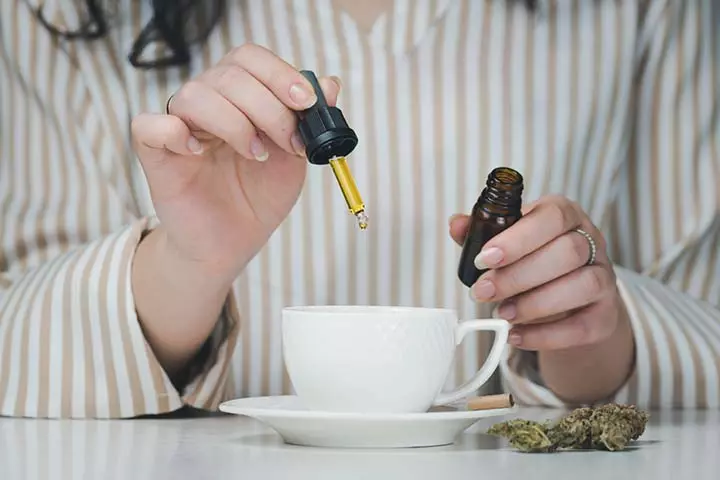
Image: IStock
Baring Epidiolex, which contains CBD, CBD oil isn’t regulated by the US FDA, making its use in children and teens risky as (5) (8)
- The ingredients of CBD oil can’t be determined accurately, meaning the products can have ingredients that aren’t mentioned on the label. For instance, several products that claim to contain only CBD may also contain high doses of THC, a psychoactive compound.
- CBD oil’s quality can’t be ascertained, as there are chances that the oil may be contaminated with microorganisms, pesticides, and heavy metals. Consuming contaminated CBD oil can cause severe effects in sensitive individuals.
- The efficacy and safety of CBD oil in minors are unclear, and research on this subject is still in its early stages. Existing studies have been either done on animals or human adults and not on pediatric patients. Further, the studies that involve children have small sample sizes.
- The dosage guidelines aren’t clear, except for CBD used in the drug Epidiolex to treat Epilepsy. Thus, using CBD oil at home is tricky, especially when you aren’t aware of how much CBD oil you can administer to a child to get the desired effect. Also, there is no way to know which mode of use is best and how much CBD would be absorbed in the body based on the method of administration.
Besides these, the legality of the use of CBD oil varies from one country to another and state to state. For instance, according to the US FDA, THC or CBD can’t be sold legally as a dietary supplement, food, or therapeutic product (4). Instead, it can only be included in cosmetics when its THC content is less than 0.3 percent (14). So, check your state’s legal requirements for CBD oil purchase and use before you make any purchases.
How To Choose CBD Oil?

Image: IStock
Proper selection of a CBD oil brand can be tricky as it’s manufactured by several companies globally. So, here are some tips that could help (15).
- Buy the product from a trusted manufacturer and seller. It will ensure the product you’re buying is of good quality and is not contaminated. Some manufacturers may dilute CBD isolate with hemp seed oil, which can make the product comparatively ineffective as they lack the balance of beneficial components found in broad-spectrum CBD oil (2).
- Read the product label carefully and determine the
- Oil source: The oil should be extracted from hemp or marijuana. Typically, hemp has a significantly less amount of THC when compared to marijuana. THC is a psychoactive chemical that can create dependence over long-term use. So, ensure you buy CBD oil extracted from hemp plants cultivated by domestic farmers. Domestic hemp is typically free of toxins and pesticides.
- Extraction method: The extraction method indicates how the oil has been extracted from the hemp plant. Typically, CBD oil is extracted using carbon dioxide (CO2) extraction or by using solvents such as ethanol, propane, and butane. Out of these, propane and butane extraction isn’t considered safe as these solvents are toxic and hazardous for children. On the other hand, ethanol and CO2 extraction techniques are safe and potent as they leave no harmful chemicals in the oil.
- Chemical composition: It signifies whether the oil is full-spectrum or isolate. Full-spectrum CBD oil will contain several phytonutrients, such as flavonoids, terpenes, and trace amounts of THC. If THC’s presence concerns you, look for CBD isolates, which are the pure form of CBD oil.
But, while you make that choice, consult an expert as concentrated CBD has high amounts of CBD per serving, increasing the chances of overdose.
- Product certification: Ensure the product has been certified by a reputable third-party testing lab or organization. The lab will test the oil quality and certify that the oil is true to its claim about its chemical composition. It’s best to buy oil that has testing information attached.
CBD oil for children and adults is the same. However, since children weigh less and are comparatively sensitive, using CBD oil with lower potency is advisable.
CBD Oil Dosage For Children

Image: Shutterstock
The appropriate dosage of CBD oil for children depends on their body weight, metabolism, medical condition, overall health, and intent of use. For instance, the US FDA has approved the daily oral use of 25mg per kg of body weight for Epidiolex, the prescription drug that contains CBD (14). Its use is approved for children aged one and above.
However, this dosage may or may not be suitable for every child. So, consult a doctor or alternative medicine expert to determine the appropriate CBD oil dosage and suitable mode of use for a child.
Frequently Asked Questions
1.Can CBD oil interact with other medications my child is taking?
Yes, CBD oil can interact with other prescription medications, supplements, and herbal medicines. Hence, talk to a doctor before adding CBD to your child’s routine (17).
2. How should I talk to my child’s pediatrician about using CBD oil?
It is important to talk to the child’s pediatrician about all the issues that lead you to believe the need of using CBD in your child’s routine. Discussing all the medical issues can help the doctor identify any underlying problem and advise you on whether CBD is needed for the child or not.
While CBD oil has gained popularity over the past few years as a remedy for various ailments, it is important to remember that the FDA does not approve CBD oil for kids. More research is needed to support and establish the safety of CBD oils in the treatment of ailments such as anxiety, autism, and ADHD. In addition, it is advisable to refrain from using these oils, even if considering them as a part or ingredient in an ADHD diet for kids. Further, consult your pediatrician before using this oil on your child.
Infographics: How Does CBD Oil Reduce Anxiety And ADHD?
Although still in its infancy, the research on CBD oil’s effect on anxiety and ADHD has shown promising results. Read through this infographic to understand the possible ways how CBD oil might help manage or treat anxiety and ADHD in children and adults. Illustration: Momjunction Design Team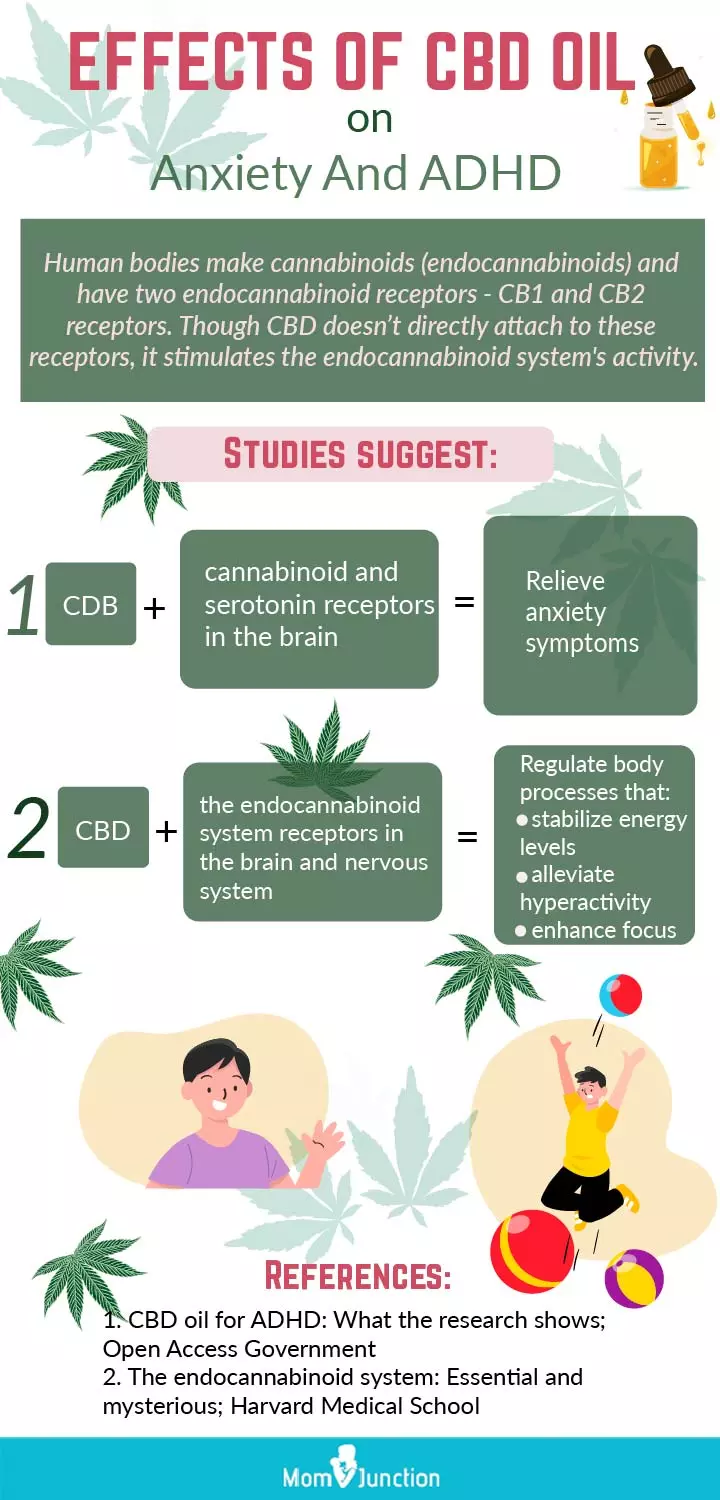
Illustration: Is CBD Oil Safe For Children With Anxiety And ADHD?

Image: Stable Diffusion/MomJunction Design Team
If you’re curious about CBD and its safety for children, watch this video. Learn about the benefits and risks of CBD use in children.
References
- Where Does CBD oil Make A Difference?
https://healthcare.utah.edu/healthfeed/2019/06/where-does-cbd-oil-make-difference - CBD oil: An Introduction
https://projectcbd.org/what-is-cbd/cbd-oil/ - Ruchita Kachru, et al. (2021). CBD Use in Children—Miracle, Myth, or Mystery?
https://jamanetwork.com/journals/jamapediatrics/fullarticle/2779397 - Cannabis (Marijuana) and Cannabinoids: What You Need To Know.
https://www.nccih.nih.gov/health/cannabis-marijuana-and-cannabinoids-what-you-need-to-know - CBD Oil: Facts You Should Know
https://www.takingcharge.csh.umn.edu/cbd-oil-facts-you-should-know - Jessica W Skelley, et al. (2003). Use of cannabidiol in anxiety and anxiety-related disorders. DOI:
https://pubmed.ncbi.nlm.nih.gov/31866386/ - Scott Shannon, et al. (2019). Cannabidiol in Anxiety and Sleep: A Large Case Series. DOI:
https://www.ncbi.nlm.nih.gov/pmc/articles/PMC6326553/ - CBD: What Parents Need to Know
https://childmind.org/article/cbd-what-parents-need-to-know/ - Lihi Bar-Lev Schleider, et al. (2019). Real life Experience of Medical Cannabis Treatment in Autism: Analysis of Safety and Efficacy. DOI:
https://pubmed.ncbi.nlm.nih.gov/30655581/ - Rabia Khan, et al. (2020). The therapeutic role of Cannabidiol in mental health: a systematic review. DOI:
https://www.ncbi.nlm.nih.gov/pmc/articles/PMC7819291/ - Thorsten Rudroff and Jacob Sosnoff. (2018). Cannabidiol to Improve Mobility in People with Multiple Sclerosis. DOI:
https://www.ncbi.nlm.nih.gov/pmc/articles/PMC5874292/ - Beware of health claims about cannabis products
https://www.aappublications.org/news/2019/10/02/parentplus100219 - CBD and other medications: Proceed with caution
https://www.health.harvard.edu/blog/cbd-and-other-medications-proceed-with-caution-2021011121743 - Cannabidiol (CBD)
https://medlineplus.gov/druginfo/natural/1439.html - CBD Oil for Kids: Is It Safe for Children with ADHD & Anxiety?
https://cfah.org/cbd-oil-for-kids/ - Cannabidiol for epilepsy (Lennox-Gastaut syndrome, Dravet syndrome).
https://australianprescriber.tg.org.au/articles/cannabidiol-for-epilepsy-lennox-gastaut-syndrome-dravet-syndrome.html - CBD and other medications: Proceed with caution
https://www.health.harvard.edu/blog/cbd-and-other-medications-proceed-with-caution-2021011121743
Community Experiences
Join the conversation and become a part of our nurturing community! Share your stories, experiences, and insights to connect with fellow parents.
Read full bio of Dr. Mubina Agboatwalla
Read full bio of Swati Patwal
Read full bio of Rohit Garoo
Read full bio of Dr. Joyani Das











